$24.95 [CAN $27.95]
BENEDICT ORDERED ANCHORS AWEIGH , and the Oneida began steaming up the East River at half speed. It was a clear, bright Saturday morning, and the water was crowded with ferries and trawlers and schooners and even a few other yachts, but they all made way for the majestic Oneida , its spotless white hull gleaming in the fetid water. Like a bride gliding down the aisle, the boat effortlessly sailed the narrow channel between Manhattan and Queens. Cleveland, Benedict, Bryant, and Lamont sat casually on the deck chatting, looking to all the world like four carefree gentlemen on a pleasure cruise. On both shores, crowds gathered to catch a glimpse of the grand yacht and its esteemed passengers. The rest of the surgical team was hidden from view. Passing the foot of 56th Street opposite Bellevue Hospital, Dr. Erdmann remembered, Dr. Bryant was particularly careful that we on board should not be recognized by any of the staff of Bellevue Hospital looking out. We went into the cabin so that we should not be recognized. After navigating the treacherous currents of the Hell Gate, the Oneida turned eastward and headed for the cleaner, bluer, bigger waters of Long Island Sound. The weather was perfect, and, much to everyones relief, the water was calm. As the Oneida entered the sound, the mood on board turned more serious. When Bryant excused himself to join the other doctors below deck, he called out to the captain jokingly, If you hit a rock, hit it good and hard, so that well all go to the bottom! Nobody laughed.

Matthew Algeo is a public radio reporter. He is the author of Harry Trumans Excellent Adventure: The True Story of a Great American Road Trip , which was one of the Washington Post s Best Books of 2009, and Last Team Standing: How the Steelers and the Eagles The Steagles Saved Pro Football During World War II , which won the 2006 Nelson Ross Award for best pro football historiography.
Jacket design: Natalya Balnova | Cover photo: Library of Congress
Author photo: A. McCollum Algeo
Printed in the United States of America


Library of Congress Cataloging-in-Publication Data
Algeo, Matthew.
The president is a sick man : wherein the supposedly virtuous Grover Cleveland survives a secret surgery at sea and vilifies the courageous newspaperman who dared expose the truth / Matthew Algeo. 1st ed.
p. cm.
Includes bibliographical references and index.
ISBN 978-1-56976-350-6 (hardcover)
1. Cleveland, Grover, 1837-1908Health. 2. Cleveland, Grover, 1837-1908Relations with journalists. 3. Depressions1893United States. 4. BimetalismUnited StatesHistory19th century. 5. United StatesPolitics and government1893-1897. 6. Press and politicsUnited StatesHistory 19th century. 7. Edwards, E. Jay (Elisha Jay), 1847-1924. I. Title.
E706.A54 2011
973.87092dc22
2010044639
Interior design: Jonathan Hahn
Copyright 2011 by Matthew Algeo
All rights reserved
First edition
Published by Chicago Review Press, Incorporated
814 North Franklin Street
Chicago, Illinois 60610
ISBN 978-1-56976-350-6
Printed in the United States of America
5 4 3 2 1
To Ann and Joan,
my sisters Tell the truth.
G ROVER C LEVELAND CONTENTS

PREFACE
O N J ULY 1, 1893, Grover Cleveland, the president of the United States, vanished. He boarded a friends yacht, sailed into the calm, blue waters of Long Island Sound, andpoofhe disappeared. Independence Day passed with the presidents whereabouts unknown.
Grover Cleveland would not be heard from again for five days. What happened during those five daysand in the days, weeks, and months that followedwas so incredible that, even when the truth was finally revealed, many Americans simply could not believe it.
The President Is a Sick Man is about an extraordinary but almost unknown chapter in American history, about a brazen political cover-up that was as diabolical asand infinitely more successful thanWatergate. Its about the lone reporter who uncovered the scandal, only to be branded a liar and a disgrace to journalism. And its about that reporters belated vindication.
This book is also about life in the 1890s, and the echoes of the past that inform us today. The eras most controversial political issue was the money question: Should our currency be based on gold or silver? It may seem arcane to us today when our currency is based on, well, nothing more than the good faith of the federal government, but the gold-versus-silver debate grew so rancorous that it threatened to explode into a second Civil War. It also may have inspired a down-on-his-luck newspaper reporter named L. Frank Baum to write a childrens book called The Wonderful Wizard of Oz, which many believe is an allegory for the money question.
In the following pages you will be introduced to the youngest First Lady in American history, a Rockefeller who sold patent medicines of questionable value, the doctor who performed one of the first successful brain surgeries in the United States, newspaper publishers unconstrained by integrity, a cigarette-smoking tightrope walker, and a handful of unfortunate suicides.
You will also meet Stephen Grover Cleveland, twice elected president of the United States, and a man so famously honest that perhaps his most memorable quotation is: Tell the truth. But Grover Cleveland was not as honest as he (or history) would have you believe. In fact, he was no less deceitful than any successful politician, and, in the summer of 1893, he deceived the entire nation.
The facts concerning the disappearance of Grover Cleveland that summer were so well concealed that even today, more than a century later, a full and fair account has never been published. Until now.
What follows is a true story.

PART I

THE OPERATION

A ROUGH SPOT
M ARCH 4, 1893, should have been a triumphant day for Grover Cleveland. After all, it was the day he was sworn in for an unprecedented second, nonconsecutive term as president. But when he awoke that morning, his emotions must have been mixed. Snow had fallen overnight, covering Washington in a frozen blanket. Gray skies threatened more. A cold wind rattled the windows of his suite at the Arlington Hotel on Vermont Avenue.
And the lousy weather was the least of his worries.
It was not an auspicious moment to assume the presidency, and Grover Cleveland knew it. I hope the skies will lighten up by and by, hed written a friend a few weeks earlier, but I have never seen a day since I consented to drift with events that I have not cursed myself for yielding. He was about to take the reins of a nation teetering on the brink of chaos. The economy was in ruins. Unemployment was rampant. Stock prices were plummeting. Banks and factories were closing by the score. Just nine days earlier, the once mighty Reading Railroad had gone bankrupt. More and bigger businesses were sure to follow the Reading into insolvency. Foreign investors who had flooded the country with capital after the Civil War were retreating like Lee from Gettysburg.
Next page
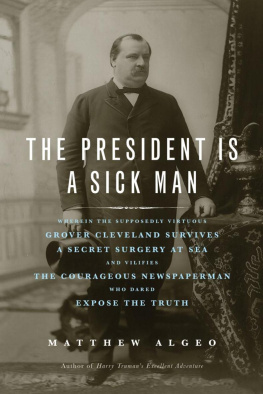
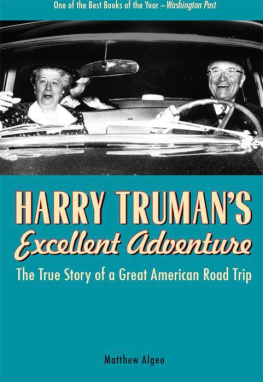
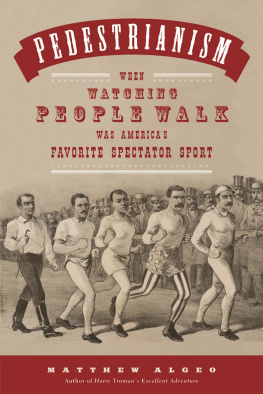

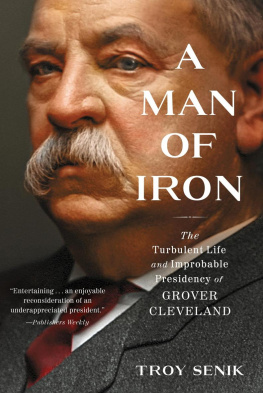
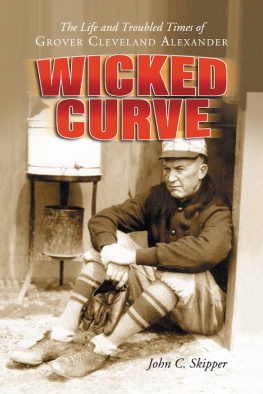
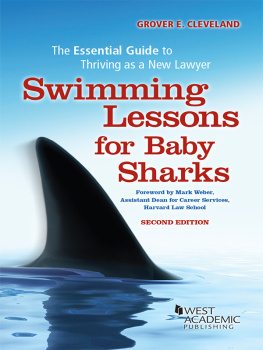




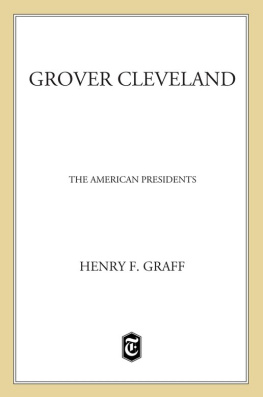

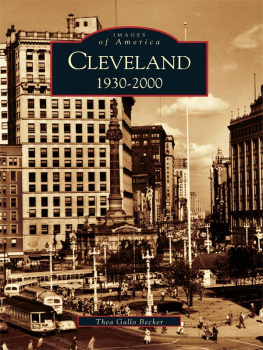
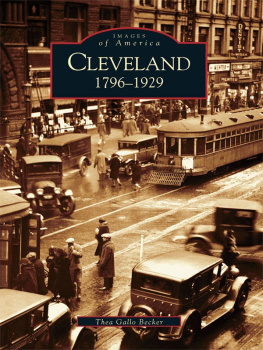
 Matthew Algeo is a public radio reporter. He is the author of Harry Trumans Excellent Adventure: The True Story of a Great American Road Trip , which was one of the Washington Post s Best Books of 2009, and Last Team Standing: How the Steelers and the Eagles The Steagles Saved Pro Football During World War II , which won the 2006 Nelson Ross Award for best pro football historiography.
Matthew Algeo is a public radio reporter. He is the author of Harry Trumans Excellent Adventure: The True Story of a Great American Road Trip , which was one of the Washington Post s Best Books of 2009, and Last Team Standing: How the Steelers and the Eagles The Steagles Saved Pro Football During World War II , which won the 2006 Nelson Ross Award for best pro football historiography. 

